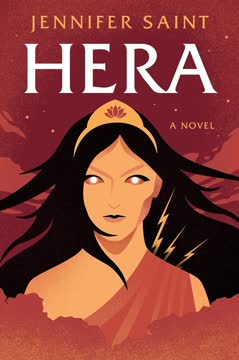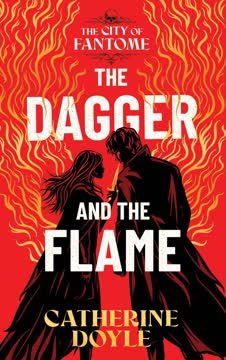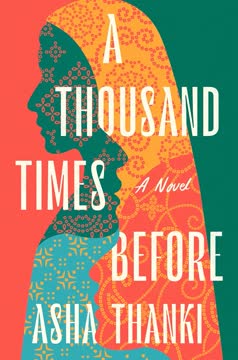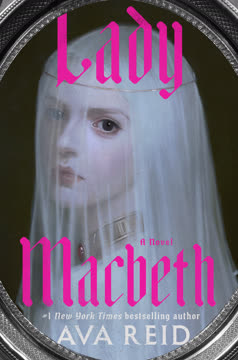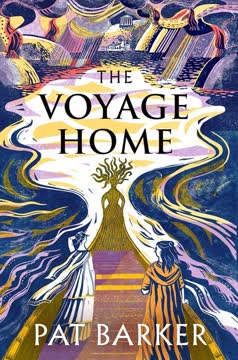Plot Summary
Birth of a Queen
The story opens in the aftermath of the Titanomachy, the war between the Titans and the Olympians. Hera, daughter of Cronus and Rhea, emerges as a fierce warrior, her hands stained with golden ichor. She is both a survivor and a victor, shaped by violence and the need for order. The earth, Gaia, mourns the devastation, and Hera, sensing the sorrow, offers a prayer of gratitude and respect. This moment marks the beginning of a new era: the Olympians' rule. Hera's identity is forged in the crucible of war, and her longing for stability and recognition is born from the chaos she helped end. The emotional weight of victory is tinged with melancholy, foreshadowing the struggles she will face as queen.
After the War
In the peace that follows, Hera walks the transformed battlefields, now meadows, and relishes her freedom. She is both a goddess of nature and a ruler, overseeing the world's renewal. The Olympians, led by Zeus, establish their palace on Mount Olympus, binding the defeated Titans in Tartarus. Hera's sense of order is paramount; she watches the remaining Titans closely, ensuring their loyalty. The gods' new world is one of structure and hierarchy, but beneath the surface, old wounds and ambitions simmer. Hera's desire for control and her wariness of betrayal set the stage for the power struggles to come, as she balances her roles as sister, lover, and queen.
The Price of Power
As the Olympian family grows, so do its complications. Zeus forges alliances with Titans and goddesses, fathering new generations of gods and muses. Hera is unsettled by Zeus' restlessness and the proliferation of his offspring, feeling her own primacy threatened. The creation of mortals by Zeus and Prometheus introduces a new, unpredictable element. Hera is skeptical of mortals, seeing them as flawed and dangerous. Her vigilance is tested when Zeus brings a mortal, Ixion, to Olympus, leading to a violation that shakes the gods' sense of superiority. Hera's need for order clashes with the chaos of desire and ambition, and her isolation deepens as she realizes the limits of her power.
Mortal Ambitions
The episode with Ixion exposes the vulnerability of the gods and the audacity of mortals. Hera is both repulsed and threatened by Ixion's lust, and Zeus' response—punishing Ixion with eternal torment—does little to ease her sense of violation. The gods debate the nature of mortals, with Hera remaining skeptical and wary. The creation of new gods and the birth of divine children further complicate the Olympian hierarchy. Hera's relationships with her sisters, Demeter and Hestia, are strained by jealousy and the shifting balance of power. The emotional landscape is one of suspicion, longing, and the ever-present threat of betrayal.
The Betrayal of Sisters
Hera's bond with her sisters is tested as the gods divide the world into realms. Hestia and Demeter accept their roles, but Hera is left without a domain, her claim to power overlooked. Gaia intervenes, urging Hera to bide her time and seek power from the shadows. The division of the world among the brothers—Zeus, Poseidon, and Hades—leaves Hera feeling betrayed and marginalized. Her refusal to marry Zeus is both an act of defiance and a desperate attempt to retain her autonomy. The emotional core of this chapter is Hera's struggle to assert herself in a world that undervalues her, and the pain of being sidelined by those she once fought alongside.
The Division of Realms
Zeus, now king of the heavens, seeks to legitimize his rule by proposing marriage to Hera. She resists, unwilling to become a pawn in his quest for absolute power. Hera's isolation grows as her sisters accept their fates, and she is left to navigate the treacherous politics of Olympus alone. The emotional tension is palpable as Hera weighs her options: submit to Zeus, rebel, or find a new path. Her longing for recognition and equality is met with indifference and manipulation. The chapter ends with Hera's reluctant acceptance of her role as queen, a position fraught with compromise and sacrifice.
Zeus' Proposal
Zeus' pursuit of Hera culminates in a violent act, shattering any illusions of romance or partnership. Hera's rape by Zeus is a turning point, marking the end of her innocence and the beginning of her reign as queen. The trauma is both personal and political, as Hera must navigate the expectations of marriage and queenship while grappling with her own pain. The wedding, staged as a public spectacle, is both a victory and a defeat. Hera's vow to use her position to undermine Zeus from within sets the stage for a lifetime of rivalry and resistance. The emotional arc is one of devastation, resilience, and the forging of a new identity.
The Chains of Marriage
As queen, Hera gives birth to children—Ares, Hephaestus, and others—each embodying aspects of her rage, disappointment, and hope. Her relationships with her children are fraught, as they fail to live up to her expectations or become pawns in the ongoing struggle with Zeus. The palace is a battleground of egos and ambitions, with Hera constantly maneuvering to maintain her influence. The creation of monsters and the birth of Typhon, a child of her own rage, reflect Hera's desire to challenge Zeus' authority. The emotional core is Hera's longing for agency and the pain of seeing her power undermined by those closest to her.
The Making of Monsters
Hera's creation of Typhon and her alliance with Ekhidna mark her most audacious attempt to overthrow Zeus. The birth of monsters is both an act of defiance and a manifestation of her inner turmoil. The rebellion fails, and Typhon is defeated, leaving Hera isolated and punished. Her imprisonment and subsequent release by Hephaestus highlight the complexities of family loyalty and the limits of vengeance. The emotional arc is one of hope, betrayal, and the sobering realization that power, once lost, is difficult to reclaim. Hera's resilience is tested, and her sense of self is forever altered.
The Queen's Fury
Hera's rivalry with Zeus continues, played out through the fates of mortals and gods alike. She punishes Zeus' lovers and their offspring, seeking to assert her dominance and avenge her own suffering. The birth of heroes like Heracles and the ongoing wars among mortals become arenas for Hera's wrath and cunning. Yet each act of vengeance brings unintended consequences, and Hera is forced to confront the futility of her rage. The emotional landscape is one of exhaustion, bitterness, and the slow erosion of certainty. Hera's identity as queen is both a source of pride and a burden she cannot escape.
The Birth of Heroes
The rise of mortal heroes—Heracles, Perseus, Jason—signals a shift in the balance of power. The gods become increasingly entangled in human affairs, their influence waning as mortals assert their own agency. Hera's attempts to shape the destinies of heroes are met with mixed success, and she is forced to reckon with the limitations of divine intervention. The Trojan War becomes the ultimate stage for the gods' ambitions and failures, with Hera both instigator and bystander. The emotional core is one of nostalgia, regret, and the dawning awareness that the age of the gods is ending.
The Madness of Gods
As the mortal world changes, the gods find themselves increasingly irrelevant. Hestia leaves Olympus, seeking meaning among mortals. Demeter withdraws, and the other gods scatter. Hera and Zeus are left alone in a crumbling palace, their power diminished and their purpose unclear. The emotional weight of loss and obsolescence hangs heavy, as Hera reflects on the cost of immortality and the inevitability of change. The chapter is suffused with melancholy, as the once-mighty gods become shadows of their former selves, clinging to rituals and memories that no longer sustain them.
The Fall of Olympus
The final unraveling of Olympus is marked by Poseidon's rage, earthquakes, and the collapse of cities. Hera confronts Zeus, now a relic, and takes his thunderbolt, symbolically ending his reign. The gods' absence is felt in the world, but mortals adapt, finding new ways to live and worship. Hera's journey is one of acceptance, as she lets go of old grievances and embraces the uncertainty of the future. The emotional arc is one of release, forgiveness, and the quiet dignity of survival.
The Last Gasp of Divinity
Hera wanders the world, observing the remnants of her influence in temples, stories, and rituals. She sees the gods reflected in human creativity and resilience, even as their direct power fades. The world is changed, but the echoes of the divine remain. Hera's identity shifts from ruler to witness, from queen to legend. The emotional tone is one of bittersweet nostalgia, as Hera finds meaning in the persistence of memory and the transformation of myth.
The World Without Gods
In a world where the gods are absent, mortals create their own stories and destinies. Hera observes the rise and fall of cities, the endurance of love and suffering, and the ongoing quest for understanding. She finds solace in the resilience of humanity and the enduring power of narrative. The emotional core is one of humility and wonder, as Hera learns to let go of control and embrace the beauty of change.
The New Order
Hera's journey comes full circle as she finds a new place in the world, not as a queen but as a participant in the ongoing story of life. She witnesses the birth of new myths, the evolution of culture, and the persistence of hope. The gods are no longer rulers but companions, their presence felt in the creativity and courage of mortals. The emotional arc is one of renewal, as Hera embraces her own transformation and the possibilities of the future.
The Enduring Flame
The story ends with Hera reflecting on the lessons of her long life: the necessity of change, the power of resilience, and the enduring flame of hope. She is no longer defined by her suffering or her rivalry with Zeus, but by her capacity to adapt and find meaning in a world that is always in flux. The emotional tone is one of peace and acceptance, as Hera steps into the unknown, carrying with her the wisdom of ages and the promise of new beginnings.
Characters
Hera
Hera is the central figure, shaped by war, betrayal, and the relentless pursuit of order. As queen of the gods, she is both powerful and vulnerable, her identity forged in the crucible of violence and ambition. Her relationships—with Zeus, her siblings, her children—are fraught with rivalry, longing, and disappointment. Hera's psychological complexity is rooted in her need for recognition and control, her fear of irrelevance, and her capacity for both vengeance and compassion. Over the course of the story, she evolves from a warrior and ruler to a witness and participant in the changing world, ultimately finding peace in acceptance and transformation.
Zeus
Zeus is both partner and adversary to Hera, embodying the contradictions of power and vulnerability. His charm and authority mask a deep insecurity and a need for domination. Zeus' relationships—with Hera, his siblings, his lovers, and his children—are marked by manipulation, violence, and a desperate quest for legacy. As the world changes, Zeus becomes increasingly isolated, his power waning as mortals assert their own agency. His psychological unraveling is both a personal tragedy and a symbol of the end of the old order.
Hestia
Hestia is the heart of Olympus, embodying the values of home, stability, and compassion. Her presence is a source of comfort and continuity, even as the world changes around her. Hestia's decision to leave Olympus and seek meaning among mortals reflects her adaptability and wisdom. She is a counterpoint to Hera's ambition, offering a model of resilience and acceptance. Her departure marks the beginning of the gods' decline, and her legacy endures in the warmth of every hearth.
Demeter
Demeter is both a giver of life and a bringer of famine, her moods shaping the world. Her love for her daughter Kore (Persephone) is the source of her greatest joy and deepest sorrow. Demeter's defiance of Zeus and her willingness to let the world suffer for her loss reveal her strength and her capacity for both creation and destruction. Her withdrawal from Olympus signals the end of an era, and her story is a meditation on the power and pain of motherhood.
Athena
Athena is the goddess of wisdom, war, and innovation, her birth from Zeus' head marking her as both his ally and his rival. She is emotionally distant, valuing logic and foresight over passion. Athena's adaptability allows her to thrive in the changing world, and her patronage of Athens reflects her commitment to progress and creativity. Her relationship with Hera is one of rivalry and eventual respect, as both goddesses learn to navigate a world that no longer centers on divine power.
Hephaestus
Hephaestus is the god of fire and craftsmanship, his physical imperfections marking him as an outsider among the gods. His relationship with Hera is fraught with disappointment and longing, as he seeks her approval and struggles with his own sense of worth. Hephaestus' exile and eventual return reflect his journey toward self-acceptance and mastery. His creations—both beautiful and terrible—are a testament to his ingenuity and his capacity for transformation.
Ares
Ares is the god of war, his temperament volatile and his loyalties uncertain. As Hera's son, he is both a source of pride and frustration, his violence reflecting her own inner turmoil. Ares' relationship with Aphrodite is passionate and destructive, mirroring the chaos he brings to the world. He is both a tool and a rival in the ongoing struggle for power, his presence a reminder of the costs of ambition and the dangers of unchecked emotion.
Aphrodite
Aphrodite is the goddess of love and beauty, her allure both a gift and a weapon. She is neither Olympian nor Titan, existing outside the traditional hierarchies. Aphrodite's influence is subtle but pervasive, shaping the destinies of gods and mortals alike. Her rivalry with Hera is both personal and symbolic, reflecting the tension between order and chaos, fidelity and passion. Aphrodite's power lies in her ability to inspire longing and disrupt stability.
Typhon
Typhon is Hera's creation, born of her anger and desire for vengeance. He is both a weapon and a symbol of her inner turmoil, his rebellion against Zeus a manifestation of her own struggle for agency. Typhon's defeat marks the end of Hera's most audacious challenge to the established order, and his legacy endures in the monsters he sires. His story is a meditation on the dangers of unchecked rage and the limits of power.
Gaia
Gaia is the earth itself, the source of all life and the ultimate arbiter of fate. Her presence is both nurturing and indifferent, her interventions shaping the destinies of gods and mortals alike. Gaia's wisdom is inscrutable, her motives mysterious. She is both a guide and a judge, her silence in the later chapters a reminder of the inevitability of change and the limits of human and divine understanding.
Plot Devices
Cyclical Power and Succession
The narrative is structured around cycles of rebellion, consolidation, and decline. The overthrow of the Titans by the Olympians is mirrored by the later challenges to Zeus' rule, both from within (Hera, Typhon) and without (mortals, heroes). The division of realms, the creation of monsters, and the birth of heroes all serve as plot devices to explore the fragility of power and the inevitability of change. Foreshadowing is used to hint at the eventual decline of the gods, as each act of violence or betrayal sows the seeds of future upheaval.
Marriage and Betrayal
The institution of marriage is a central plot device, symbolizing both unity and subjugation. Hera's marriage to Zeus is both a source of power and a site of trauma, shaping her identity and her actions. The marriages of other gods and mortals—often marked by violence, betrayal, or manipulation—reflect the complexities of love, loyalty, and ambition. The recurring motif of broken vows and shifting alliances underscores the instability of the divine order.
Creation and Destruction
The gods' ability to create—children, monsters, mortals—is matched by their capacity for destruction. Each act of creation carries the potential for chaos, and each act of destruction paves the way for renewal. The birth of Typhon, the creation of mortals, and the rise of heroes all serve as catalysts for change, driving the narrative forward and highlighting the tension between order and chaos.
Humanization of the Divine
The narrative structure blurs the line between gods and mortals, emphasizing the shared emotions, desires, and vulnerabilities of both. The decline of the gods is paralleled by the rise of human agency, and the persistence of myth is shown to be a product of human creativity and memory. The gods' struggles with relevance, identity, and loss mirror the existential dilemmas of humanity, inviting readers to reflect on the nature of power, legacy, and meaning.
Foreshadowing and Prophecy
Prophecies and omens are woven throughout the narrative, shaping the actions of gods and mortals alike. The fear of succession, the warnings of Gaia, and the predictions of the Fates all serve to heighten the sense of inevitability and tragedy. The use of foreshadowing creates a sense of tension and anticipation, as characters struggle to escape or fulfill their destinies.
Analysis
Jennifer Saint's Hera is a sweeping, psychologically rich reimagining of Greek myth, told through the eyes of its most misunderstood queen. The novel interrogates the costs of power, the trauma of subjugation, and the resilience required to survive in a world built on cycles of violence and betrayal. Hera's journey—from warrior to queen, from victim to survivor, from ruler to witness—mirrors the evolution of myth itself, as the divine gives way to the human, and the old gods fade into memory. The book's modern resonance lies in its exploration of agency, identity, and the necessity of change. Hera's refusal to be defined by her suffering, her willingness to adapt, and her ultimate embrace of uncertainty offer a powerful meditation on the endurance of hope and the possibility of renewal. In a world where the old certainties are crumbling, Hera reminds us that meaning is found not in the preservation of power, but in the courage to let go, to change, and to begin again.
Last updated:
Review Summary
Hera receives mixed reviews, with praise for Saint's lyrical writing and feminist retelling of Greek mythology. Many readers appreciate the complex portrayal of Hera, humanizing her without excusing her actions. Some find the pacing slow and the character development lacking. Critics note the book's accessibility for mythology newcomers while still engaging long-time fans. The ending is frequently cited as emotional and satisfying. Overall, readers commend Saint's ability to reframe Hera's narrative, though opinions vary on its success in fully capturing the goddess's complexity.
